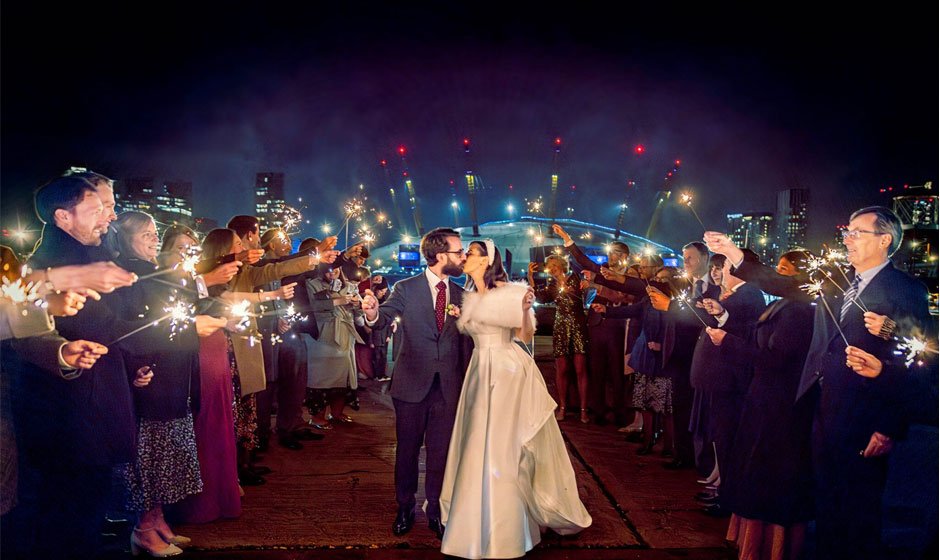Nikubou’s “Pretend Newlyweds” event, also known as “The Fake Marriage Trial,” is a thought-provoking social experiment that challenges the conventional understanding of marriage and relationships. It invites participants to step into the shoes of newlyweds, exploring the dynamics of couplehood and the impact of societal expectations on personal choices.
Self Discovery Through Pretend Newlyweds
At the heart of the experiment lies the question: what does it truly mean to be married? By immersing themselves in the roles of newlyweds, participants embark on a journey of self-discovery, scrutinizing their own behavior and the behavior of their assigned partners. They observe the subtle cues, the unspoken expectations, and the unspoken pressures that arise within a marriage-like setting.
10 Interesting Facts About Pretend Newlyweds
- Unique Concept: The event challenges conventional perceptions of marriage and relationships by placing participants in the role of newlyweds, exploring the dynamics of couplehood and the impact of societal expectations.
- Immersive Experience: Participants fully immerse themselves in the roles of newlyweds, living as if they were married for a set period, allowing them to observe and analyze their behavior and the behavior of their assigned partners.
- Exploration of Marriage Dynamics: The event delves into the complexities of marriage, examining the interplay of love, commitment, and societal norms, providing insights into the challenges and joys of navigating a committed relationship.
- Self-Discovery and Reflection: Participants embark on a journey of self-discovery, scrutinizing their own assumptions about marriage and the roles of spouses, questioning traditional narratives and personal beliefs.
- Social Experimentation: The event serves as a social experiment, shedding light on the impact of societal expectations and pressures on personal choices, challenging participants to confront the weight of expectations and unspoken rules.
- Open Communication and Compromise: Participants engage in open communication, learning to compromise and navigate conflicts, gaining valuable insights into the art of maintaining a healthy relationship.
- Beyond Role-Playing: The event goes beyond mere role-playing, promoting self-reflection and a willingness to challenge deeply held beliefs about love, commitment, and the institution of marriage.
- Transformative Potential: The experience has the potential to transform participants’ perspectives on relationships, challenging conventional narratives and prompting individuals to question their own relationship choices.
- Exploration of Human Connection: The event encourages exploration of the depths of human connection, examining the transformative power of love in a world of expectations and societal pressures.
- Redefining Love and Relationships: Participants are invited to redefine their understanding of love and relationships, moving beyond traditional expectations and societal norms to embrace a more personal and fulfilling concept of couplehood.
Why Is Pretend Newlyweds Getting So Popular?
Opportunity for Self-Discovery
The immersive nature of the experiment provides a valuable opportunity for self-discovery, allowing participants to gain deeper insights into their own personalities, relationship patterns, and communication styles.
Challenge to Conventional Perceptions
The event challenges participants to question their assumptions about love, commitment, and the institution of marriage, encouraging them to think critically about societal expectations and personal choices.
Enhancement of Relationship Skills
Participants develop and enhance their relationship skills through the process of interacting with their assigned partners, learning to communicate effectively, resolve conflicts, and navigate the complexities of couplehood.
Social Experimentation and Insight
The event serves as a social experiment, providing valuable insights into the impact of societal norms and expectations on individual behavior and relationship dynamics.
Open Communication and Self-Reflection
The experiment fosters open communication, self-reflection, and personal growth, encouraging participants to confront their own biases, insecurities, and communication patterns.
Transformative Experience
The event has the potential to be a transformative experience, challenging participants’ perspectives on relationships and prompting them to reconsider their personal relationship goals and expectations.
Exploration of Human Connection
The event encourages participants to explore the depths of human connection, fostering empathy, understanding, and appreciation for the complexities of love and relationships.
Challenging Societal Narratives
The event provides a platform to challenge traditional narratives and societal expectations surrounding marriage and relationships, promoting a more inclusive and diverse understanding of couplehood.
Personal Growth and Relationship Preparedness
The event contributes to personal growth and relationship preparedness, equipping participants with valuable insights and skills that can be applied to their current or future relationships.
Can I Be A Part Of Pretend Newlyweds?
Nikubou’s “Pretend Newlyweds” event is not currently available to the public. It was a social experiment conducted by Nikubou, a Japanese company, in collaboration with researchers and relationship experts. The experiment was designed to explore the dynamics of marriage and relationships, and it involved pairing up participants and instructing them to act as if they were newly married couples for a set period of time.
Conclusion
In essence, Nikubou’s “Pretend Newlyweds” event attracts participants due to its unique concept, its potential for self-discovery and personal growth, its challenge to conventional perceptions, and its emphasis on open communication, self-reflection, and the exploration of human connection. It provides a valuable and transformative experience that can have a lasting impact on participants’ understanding of relationships and their own approach to couplehood.






